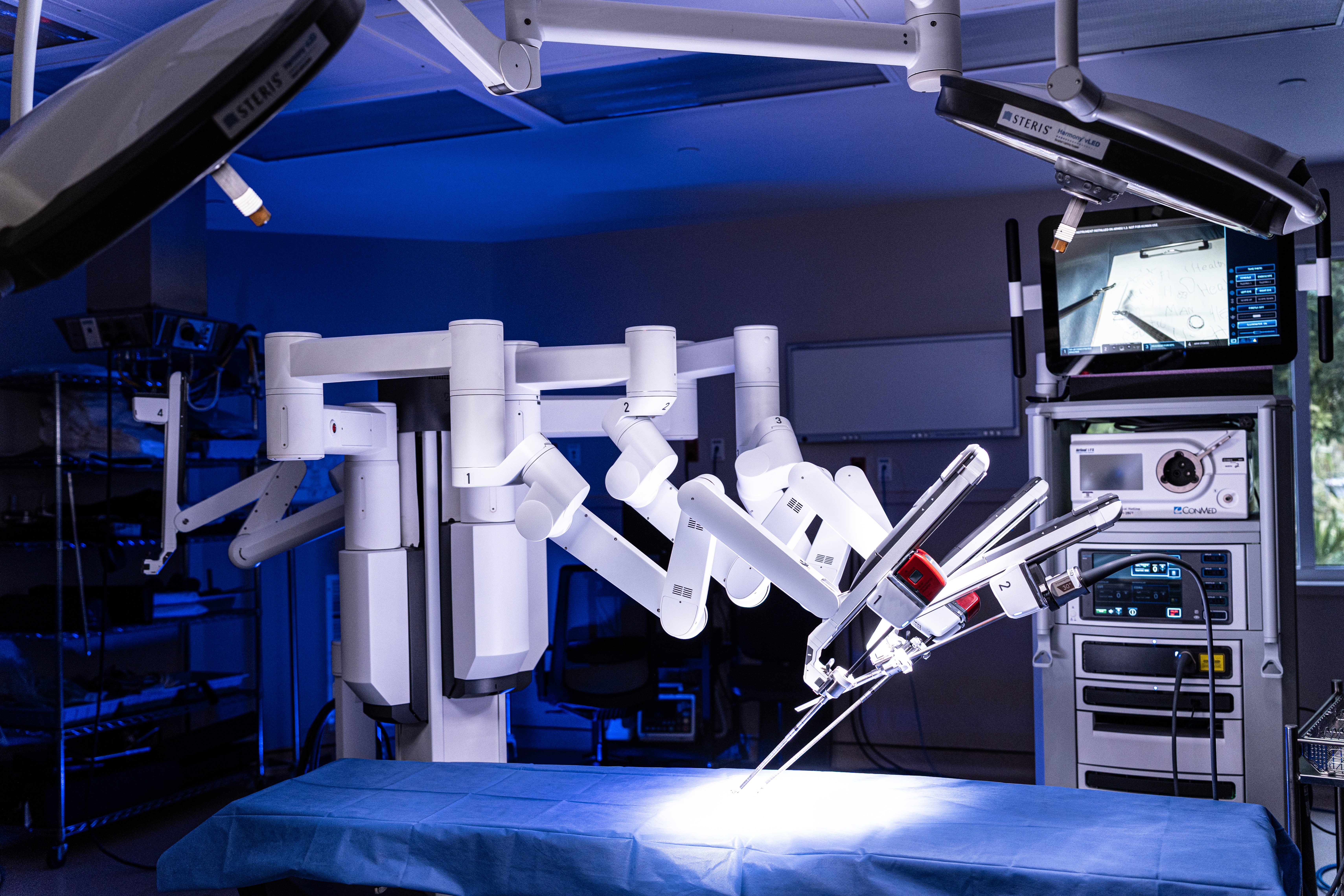
Artificial intelligence, robotic-assisted surgery and other innovations are ushering in a new era of medicine. No longer futuristic concepts, these tools already are reshaping patient care. Paired with human expertise, they enhance safety, improve accuracy and set the stage for outcomes once thought impossible.
AI now supports clinicians in real time, analysing vast amounts of data in seconds and alerting providers to risks before they become problems. Even the simple process of reviewing medical records has undergone significant changes. Digital systems streamline documentation, decision-making and follow-up, reducing errors and improving efficiency. In the operating room, robotic platforms provide surgeons with sharper visualisation and greater precision, reducing the risk of complications and accelerating recovery.
The dangers of minor errors are well known — a misspelled name, a wrong birthdate, an overlooked note. Such slip-ups can result in improper treatment. AI helps prevent them by instantly flagging inconsistencies across thousands of records, giving physicians an added layer of protection. Similarly, robotic systems steady a surgeon’s hand and provide controlled movements that reduce the risk of surgical error. Together, these technologies help ensure the right patient receives the proper care at the right time.
Beyond preventing mistakes, technology predicts risks. AI detects subtle shifts in health data, warning clinicians of potential complications early enough to intervene. Robotic surgery enables less invasive procedures, resulting in less pain, reduced blood loss and a lower risk of infection — all factors that contribute to shorter hospital stays.
For patients with chronic conditions, AI provides an additional safeguard. Managing multiple prescriptions can create dangerous drug interactions. While physicians remain vigilant, AI cross-checks patient histories against pharmaceutical databases in real time, alerting doctors to contraindications that might otherwise go unnoticed. Robotic surgery also expands treatment options for patients who were previously deemed too high-risk for conventional procedures, thereby improving their quality of life.
Technology is also breaking down silos in the medical field. Patients often see multiple specialists whose records don’t always align. AI-enabled platforms consolidate information into a single, comprehensive file, ensuring that all providers share the same view — the result is better communication, fewer duplicate tests, shorter delays and more coordinated care. When surgery is required, robotic systems can integrate with these records, equipping surgeons with precise data before they operate.
From spotting tumours on radiology scans to guiding surgical instruments with millimeter accuracy, AI and robotics redefine what is possible. AI serves as an extra set of eyes, reducing the likelihood of misdiagnosis, while robotic systems extend a surgeon’s capabilities for delicate, minimally invasive operations. Together, they deliver earlier detection, more precise treatment and faster healing.
At Health City Cayman Islands, patients have access to a wide range of advanced technologies. These include a 4D ultrasound machine that enhances prenatal imaging, the da Vinci robotic surgical system for complex minimally invasive procedures, the CORI surgical system for precision in joint replacement, RapidAI software to support the diagnosis and management of stroke, Medha AI for healthcare data analytic and other diagnostic and therapeutic technologies. Together, these technologies help physicians deliver safer procedures, faster recovery times and more consistent outcomes for patients across the region.
Outside the hospital, patients stay more connected through wearable devices, virtual assistants and automated reminders. These tools help track medications, schedule appointments and monitor symptoms — catching problems before they escalate and reducing unnecessary hospital visits.
Developers are embedding strict safeguards to protect sensitive data while still enabling clinicians to use real-time analytics, which helps ensure any concerns about the privacy of information is addressed.
Ultimately, technology cannot replace the compassion of a nurse, the expertise of a surgeon or the judgement of a physician. Healthcare remains grounded in trust, empathy and human connection. Technology’s role is to partner with providers — working quietly in the background — so clinicians can focus on what matters most: caring for people.
As the Cayman Islands expands access to advanced medical services, the integration of AI and other technologies marks a significant step forward. Combined with human expertise, these tools enhance patient safety, strengthen decision-making and point toward a new era of care defined by better outcomes and faster recovery.
For more information, contact Health City Cayman Islands at 345-640-4040.
Combined with human expertise, these tools enhance patient safety, strengthen decision-making and point toward a new era of care.


